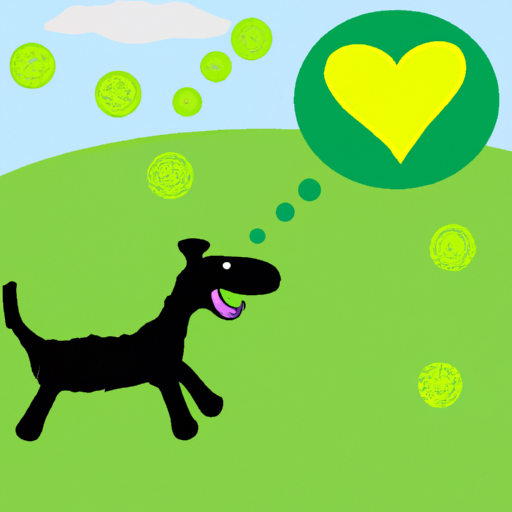The Theory Behind the Obsession
You might have noticed your furry friend’s obsession with tennis balls. Why is it that they can’t seem to get enough? Well, it’s not as random as you may think. Dogs are naturally drawn to things that mimic their ancestral hunting instincts. A tennis ball’s size, shape, and weight closely resemble that of a small prey animal, hence triggering an instinctual response.
When you toss a tennis ball, your dog sees it as a prey item fleeing. The chase, the catch, and the victorious return with the “prey” in their mouth makes them feel like they have accomplished an important job. The squeak of a tennis ball also plays a role in this instinctual game, resembling the sound a small animal might make when caught.
The Sensory Appeal
In addition to their hunting instincts, dogs are also attracted to tennis balls because of their sensory appeal. Dogs have a highly developed sense of smell and tennis balls offer a unique scent. The rubber and glue used to make a tennis ball give off a strong smell that canines find appealing.
Dogs also enjoy the texture of a tennis ball. The rough, fuzzy surface is enjoyable for them to chew on and the bounce of the ball adds to their excitement. There’s nothing more satisfying for a dog than to sink their teeth into a tough yet forgiving object.
The Bonding Time
Playing fetch with a tennis ball also provides valuable bonding time between you and your dog. The game of fetch is a cooperative activity that strengthens the bond between the dog and the human. This bonding time is essential for dogs, who are pack animals by nature.
By playing fetch, you’re showing your dog that you are part of their pack and that you’re willing to engage in fun activities with them. It’s a form of social interaction that dogs crave and it helps to build trust and companionship.
The Health Benefits
Playing with tennis balls isn’t just fun, it’s also beneficial for your dog’s health. Fetching a tennis ball is a great exercise for dogs. It keeps them active and helps to maintain a healthy weight. It’s also good for their mental health, as it stimulates their mind and relieves boredom.
| Benefits | Description |
|---|---|
| Physical exercise | Keeps your dog active and helps maintain a healthy weight |
| Mental stimulation | Helps to relieve boredom and keep your dog’s mind sharp |
| Dental health | Chewing on a tennis ball can help clean your dog’s teeth and gums |
The Reward System
Lastly, dogs love tennis balls because they often come with rewards. If you’ve ever trained a dog, you know that rewards are a big part of the process. When your dog fetches a ball and brings it back, they are usually rewarded with praise, petting, or a treat. This positive reinforcement makes the dog associate the tennis ball with good things, hence their love for the ball.
FAQs
1. Can tennis balls be harmful to dogs?
Yes, if a dog chews a tennis ball excessively, it can wear down their teeth. Also, small pieces from a broken ball can be a choking hazard.
2. Are there safer alternatives to tennis balls for dogs?
Yes, many pet stores sell dog-specific toys that are designed to be safe for chewing and playing fetch.
3. Why does my dog destroy tennis balls?
This could be a sign of boredom or excess energy. Consider increasing their exercise routine or providing them with more mentally stimulating toys.
4. How often should I replace my dog’s tennis ball?
As soon as you notice the ball starting to break apart, it should be replaced to prevent your dog from swallowing small pieces.



